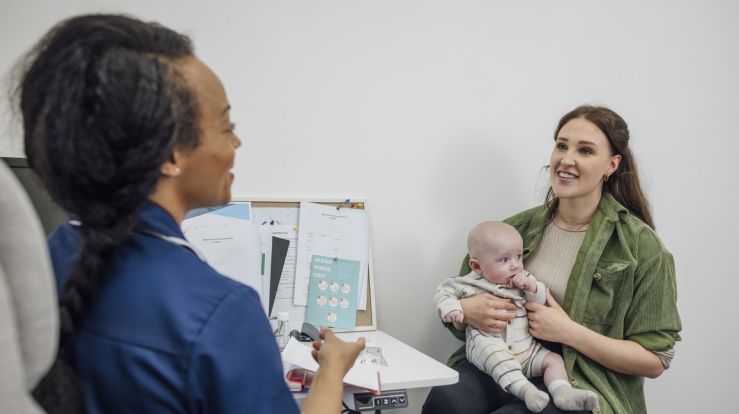Working with patients and care teams to design and implement universal screening for social health
The challenge
Social health is an essential part of total health. In the ACT Center's evaluation of the Community Resource Specialist (CRS) role at Kaiser Permanente Washington, we learned that the CRS role can help address unmet social needs for many patients, but patients may need significant support to overcome barriers to accessing resources and the stigma of asking for help. As a next step, we are partnering with delivery system leaders, care teams, and members at Kaiser Permanente Washington to co-design and implement a patient-centered approach to conducting universal screening for social needs.
The goals of the project are to:
- Reliably, equitably, and routinely screen all members for social health to identify those with social needs and social risks — supporting personalized, individual care that improves health outcomes of our members.
- Bolster population health management approaches that recognize social health factors in risk-stratification and facilitate outreach to those at risk for barriers to care.
- Provide insight into broader community needs and resources and inform how to make meaningful contributions to our communities.
The work
- Identify and engage patient partners
- Work with clinics, care teams, and patient partners to develop workflows and patient care pathways and specify care team roles
- Develop process and outcome metrics to support implementation and evaluation
- Partner with Care Delivery Technology Services to build technical tools to support the work
- Pilot implementation of integrated social health screening at 2 primary care clinics, leveraging the CRS role
- Develop provider and care team trainings on social risk-informed care (care that is adjusted in response to social circumstances) and social needs-targeted care (care that directly addresses social needs by arranging for referrals and/or immediate assistance)
- Prepare for scale and spread to other Kaiser Permanente Washington clinics
What we're learning
Adopting new pre-visit and rooming workflow activities is challenging for busy care teams, but they are invested in the work and are already seeing the impact of connecting members with needs to available resources through the CRS. Having automated tools and workflows to support the implementation helps streamline the work and ensure consistency. Our clinical staff are excited about the possibility of building a sustainable, resilient, and empathetic culture of supporting whole-person care at Kaiser Permanente Washington.
Impact
Systematically identifying patients' social risk and providing resources to address their unmet social needs will help Kaiser Permanente Washington lead the way in providing whole-person care to all members. This project aligns with Kaiser Permanente National’s vision for a comprehensive social health practice across the organization and leverages the unique CRS role across Kaiser Permanente Washington. It has the potential to improve the health of individual members with immediate social needs, and to increase the effectiveness of population care by allowing us to identify those who might need additional support or resources.
Featured publications
Singer A, Mahmud A, Mun S, Westbrook E, Barnes K, Coleman K, Ewing J, Den Hann H, Brown M. “It doesn’t feel as much like my downfall for needing help”: patient perspectives on pathways for improving health through social health integration. BMC Health Services Research 25, 1374. doi.org/10.1186/s12913-025-13558-z Full text
Mahmud A, Brown M, Lewis C, Ornelas I, Pardee R, Mun S, Piccorelli A, Westbrook E, Den Hann H, Wong E. Differences in health care costs between two social health support programs: findings from a randomized social health integration pilot program. BMC Health Services Research 25, 1244. Sept 2025. doi.org/10.1186/s12913-025-13303-6 Full text
Mahmud A, Wong E, Lewis C, Ornelas I, Wellman R, Pardee R, Mun S, Piccorelli A, Westbrook E, Den Hann H, Brown M. Differences in Health Care Utilization Across 2 Social Health Support Modalities: Results From a Randomized Pilot Evaluation. AJPM Focus. Vol 4, Issue 3. June 2025. doi.org/10.1016/j.focus.2025.100323 Full text
Mahmud A, Brown M, Wong E, Ornelas I, Wellman R, Mun S, Singer A, Westbrook E, Barnes K, Den Hann H, Lewis C. Comparison of clinic-based assistance versus a centralized call center on patient-reported social needs: Findings from a randomized pilot social health integration program. BMC Public Health 25, 1171. March 2025. doi.org/10.1186/s12889-025-22334-x. Full text
Featured news

Integrating social health into primary care
November 17, 2025

Using research capabilities to advance social health
August 2, 2025

What's next for social health integration?
May 26, 2023
